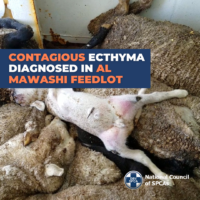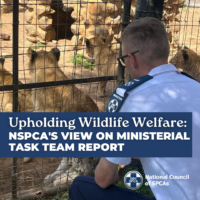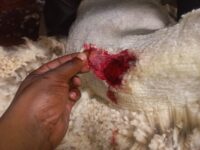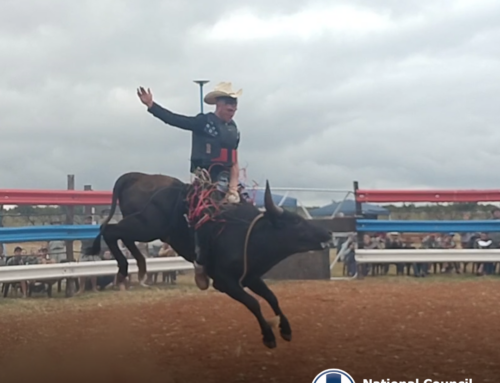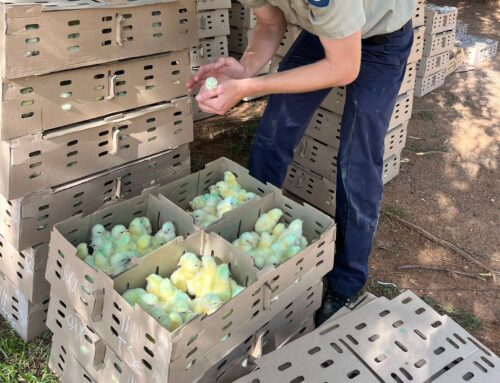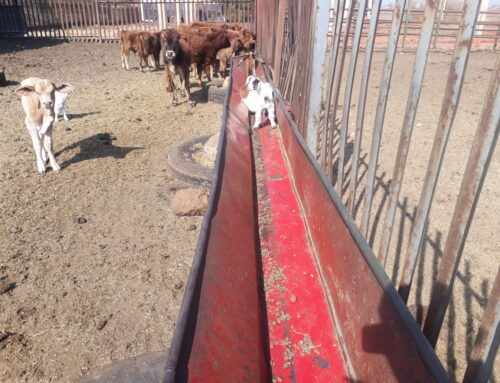The NSPCA regularly inspects poultry farms and does not hesitate to take action where necessary. The NSPCA has also been advocating for laying hens to be allowed to live more humane and free lives, but the South African Poultry Association (SAPA) proposes to just increase the space for battery hens from 450 cm2 to 550 cm2 which the NSPCA finds extremely unacceptable. Further to this, it has been brought to the attention of the Council that SAPA has been allegedly stating that the NSPCA agreed to the aforementioned increase in cage size. The NSPCA publicly places on record that such allegations are false and that the NSPCA has not agreed to such. Until such a time that chickens live a life that is in line with the five freedoms of animals, there will be no agreement from the NSPCA.
Globally, chickens are among the most abused animals bred for food. At this very moment, hundreds of millions of layer hens are being exploited for their eggs around the globe. According to reports, over 86% of egg-laying hens in South Africa are kept in battery cages.
Battery cages offer extreme confinement, with each hen having less living space than a standard A4 piece of paper. The sole purpose of a caged hen system is to maximize profit and productivity, with more hens being housed in a small area and higher egg production in comparison with free-range alternatives. There is little to no consideration for the welfare of the hens.
Research has proven that battery cage systems deny the hens the opportunity to exhibit even the most basic and key behaviours that are fundamental to their welfare. Most are unable to even stretch their wings, let alone forage, preen, dust-bathe, exercise or perch. Due to the stress of such intense confinement, that denies them their important natural behaviours, hens begin engaging in unnatural behaviours in an attempt to cope. They begin to self-mutilate or cannibalise other hens. As a result, husbandry involves surgically removing parts of the hens’ sensitive beaks without administering any anaesthesia or pain killers. Physical alterations of farmed animals are predominately carried out in an attempt to “adapt” these animals to overcome behavioural problems and injuries associated with inappropriate/inhumane husbandry systems such as battery cage systems.
As male chicks in the egg industry are incapable of laying eggs and they are not primarily bred for human consumption, they are deemed “worthless” by the industry. Upon hatching, male chicks originating from egg-laying breeder farms are disposed of in a manner which involves grinding them alive using industrial macerators. There have been many instances where male chicks were dumped at refuse sites whilst still alive.
Many popular egg and chicken producers and retailers in South Africa are keeping their consumers in the dark regarding the conditions their chickens are being kept in.
Inaccurate labelling prevents correct traceability of products by consumers. Do NOT be fooled by labels such as ‘farm grown’, ‘country eggs’ etc. and stay on the cautionary side of eggs that are labelled as ‘free range’. A case in point is the fact that the Government has made it legal for producers and retailers to label eggs as ‘free range’ even though the hens could have been confined indoors for a 24-week period for quarantine.
The general public or consumers are not aware that due to Avian Influenza outbreaks, free-range layer hens are often ‘quarantined’ indoors for 24 weeks, yet the eggs are still sold to the public as ‘free range’. The NSPCA has since approached retailers to place signs which informs the public that the hens were quarantined for 24 weeks, however, this remains at the discretion of the retailer.
Help the NSPCA achieve a more humane and free life for all chickens – https://nspca.co.za/donate/
Donate to the NSPCA
If you are as passionate about animals and their well-being as we are, consider supporting our causes by donating here.

